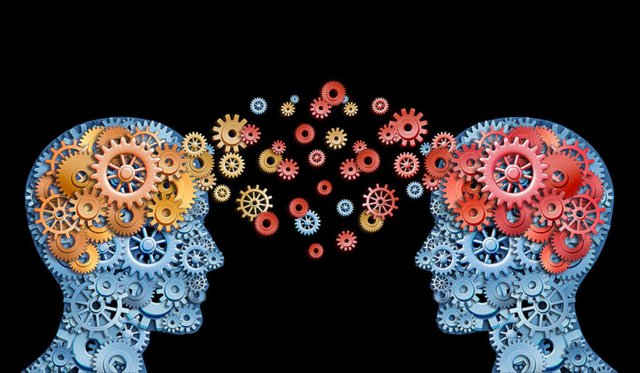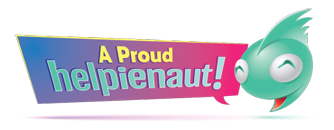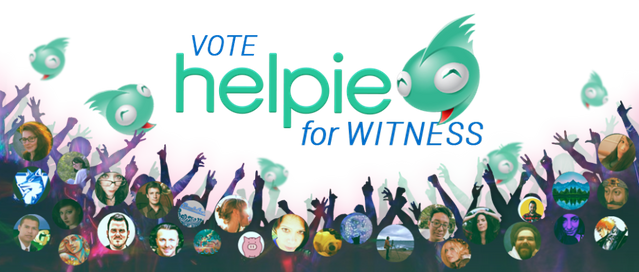The Joy Of Not Knowing
Science and technology advance in such great speeds that it's sometimes easy to forget that there's so much that we don't understand yet. And you might be surprised to learn that many of those unknowns are the stuff of everyday life. Even more surprising are the theories we can come up with when we combine some of the unknowns, using a modicum of plausible assumptions.

source: Wikimedia Commons
Top 10 lists aren't really my thing, but there's no escaping the deluge of these ordered lists on the internet. "Top 10 Most Dangerous World Records," "Top Ten Greatest Dunkers Ever," and "TOP 10 BEST TORNADOES" are the top three search results when searching for "top ten" on the video section of Google. Two places further down that list I find "Top 10 People Getting TRIGGERED!" ... I believe no further explanation is needed as to why these lists are best left alone. Today however I stumbled upon an unordered list of ten things science can not explain (yet).
Here's the link to 10 Things Science Doesn’t Have the Answer For - Yet; it's an interesting read, at least I think so. Most of the unknowns mentioned I knew of already, some I even wrote about, but there were definitely some surprises, like we don't know why cats purr, or why it takes 10.000 more genes to make a tomato than an infinitely more complex human. What was even more surprising to me, was that there are three things on that list, two of which I was already familiar with, that combined immediately in my mind; there was one of those "ahhaaa" moments you're all familiar with, when suddenly something "clicks" in your mind, and you suddenly understand something that's been eluding you up to that moment.
Science still doesn't know why we dream, what the function of dreaming is. There are theories, but ultimately dreams have not been explained by science, philosophy and religions since the start of recorded history. This is common knowledge, so there was no surprise there; dreams are part and parcel of consciousness. Also the fact that science has no answer as to how the placebo effect works, was no surprise, and it wasn't for you either, dear reader, if you've read my article I wrote about that subject a couple of months ago. If you haven't and would like to catch up, you can find it here.
The surprise, and the click in my mind, happened when I read that scientists don't know how the immensely popular drug paracetamol (a.k.a. acetaminophen or Tylenol) works... Really, they don't; I've immediately looked it up and here's the gist of it:
Despite its widespread use for more than 100 years, we still don't fully understand the exact mechanism of paracetamol in relieving pain and fever.
Paracetamol is thought to relieve pain by reducing the production of prostaglandins in the brain and spinal cord.
source: Netdoctor
The mechanism of action of paracetamol is not completely understood. Unlike NSAIDs such as aspirin, paracetamol does not appear to inhibit the function of any cyclooxygenase (COX) enzyme outside the central nervous system, and this appears to be the reason why it is not useful as an anti-inflammatory.
source: Wikipedia

source: Wikimedia Commons
That was a surprise, but immediately folowed by a mental click in the form of a picture of Rupert Sheldrake... You see, Sheldrake is somewhat of an outcast in scientific circles because he dares study phenomena that traditional science refuses to touch, more esoteric and spiritual things like parapsychology, past life - and near-death experiences, and a concept he calls morphic resonance; very simply put, this is his theory of a shared consciousness between members of a species. He has done many experiments to try to prove this theory, but they lack the significant numbers needed to be called statistically significant. Still, he had some results that should stop and make us think.
He did an experiment that I remember from decades ago involving the morning newspapers crossword-puzzle. Rupert asked the editors to provide him with the crossword puzzle for next morning's paper to do the experiment. What he did was first ask, a couple of hundreds it was I believe, people to record the time it took them to solve the puzzle, so he had an average time for comparing later. Then, when the editors started sending him next day's puzzles, he asked an additional group of people to solve the puzzle the evening before; if consciousness is somehow shared, so he theorized, it should take people from the first group less time to solve the puzzle if a large group in the same city or neighborhood had already solved it, because that knowledge would be more readily available in the shared consciousness. And he claims that this was indeed the case.
Do you already see what clicked in my head? We don't know how placebo works, but we strongly suspect it has something to do with the expectation of a cure, that when our brains are convinced some drug or treatment will be beneficial to our health, then it will be, even if the drug is made of sugar and the treatment is completely bogus. We don't know why we dream, or how consciousness arises, but we strongly suspect that the self is an illusion, a necessary illusion, but an illusion nonetheless. And we don't know what physiological and chemical mechanics are responsible for the functioning of the world's most popular painkiller... Could paracetamol be the world's most shared placebo dream? Is it our shared "knowledge" of paracetamol's pain-killing attributes that turns it into the most successful placebo in recorded history? I don't know, but that clicking feeling was a nice experience to have, even when I feel these unknowns are precious; they are what keep us curious and driving forward. I hope I was able to share some of the joy "not knowing" brings to our lifes.
Thanks so much for visiting my blog and reading my posts dear reader, I appreciate that a lot :-) If you like my content, please consider leaving a comment, upvote or resteem. I'll be back here tomorrow and sincerely hope you'll join me. Until then, keep steeming!

Recent articles you might be interested in:
| Latest article >>>>>>>>>>> | Other Side Of The Coin |
|---|---|
| Storytelling Apocalypse | The Great Debate |
| Captain Mary Sue Goes Viral | Billionaires Fearing "The Event" |
| Anunnaki Ancestors? | Infinity Gauntlet |

Thanks for stopping by and reading. If you really liked this content, if you disagree (or if you do agree), please leave a comment. Of course, upvotes, follows, resteems are all greatly appreciated, but nothing brings me and you more growth than sharing our ideas. It's what Steemit is made for!


Just for Full Disclosure, I'm invested in these crypto-currencies:
Bitcoin | Litecoin | EOS | OmiseGo | FunFair | KIN | Pillar | DENT | Polymath | XDCE | 0x | Decred | Ethereum | Carmel | XYO

@helpie is a WITNESS now! So please help @helpie help you by voting for us here!

That phrase comes to mind, "There are more things in heaven and earth, than are dreamt of in your philosophy."
I'm really surprised about paracetamol too, but I think there is more to it than a placebo effect. For my husband, the anti-inflammatory pain meds like aspirin and ibuprofen don't work at all, so he takes paracetamol. He doesn't wind down easily, so it's only the pain relief kicking in that allows him to relax a bit.
I also believe that the placebo effect is multi-pronged. Stress is one of the biggest enemies of our immune system, so if we believe that something will cure us then we not only have that positive thinking on our side, we've reduced our stress levels, allowing our immune system work better.
I must look into Rupert some more. These sounds like some fascinating experiments. All things are connected...
Posted using Partiko Android
Thanks for a great response @minismallholding; that's a wonderful addition about stress and it's detrimental effects on our immune systems. Much appreciated! 😊
It is a strange world, especially that you need to have 10000 more genes than a human to create a tomato!
It's a strange world indeed my friend 😋 Thanks so much for stopping by! 😊
My pleasure and for the joy to keep reading your great contents. :)
Hi @zyx066!
Your post was upvoted by @steem-ua, new Steem dApp, using UserAuthority for algorithmic post curation!
Your UA account score is currently 3.430 which ranks you at #6726 across all Steem accounts.
Your rank has dropped 54 places in the last three days (old rank 6672).
In our last Algorithmic Curation Round, consisting of 174 contributions, your post is ranked at #90.
Evaluation of your UA score:
Feel free to join our @steem-ua Discord server